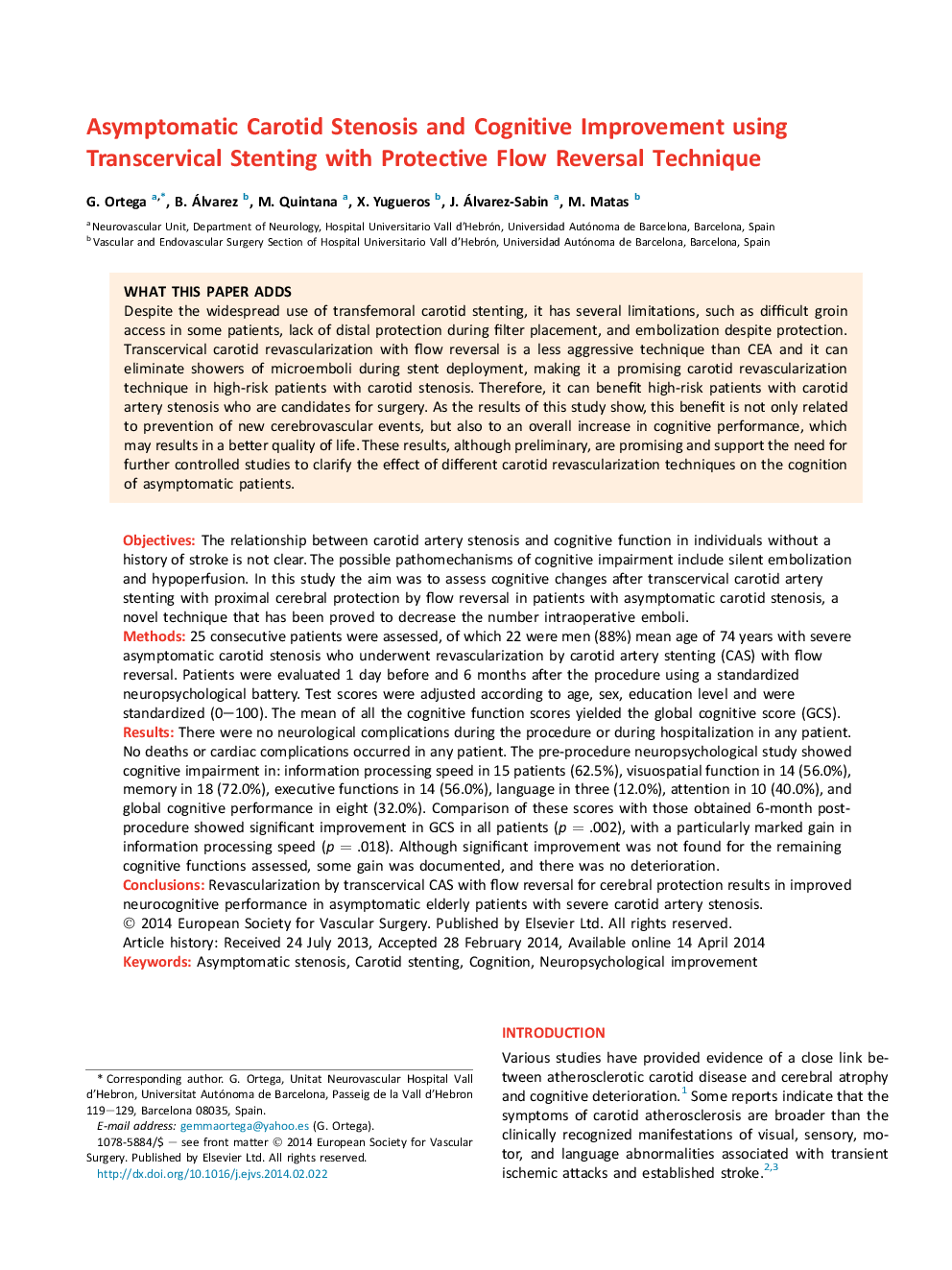| Article ID | Journal | Published Year | Pages | File Type |
|---|---|---|---|---|
| 5958312 | European Journal of Vascular and Endovascular Surgery | 2014 | 8 Pages |
ObjectivesThe relationship between carotid artery stenosis and cognitive function in individuals without a history of stroke is not clear. The possible pathomechanisms of cognitive impairment include silent embolization and hypoperfusion. In this study the aim was to assess cognitive changes after transcervical carotid artery stenting with proximal cerebral protection by flow reversal in patients with asymptomatic carotid stenosis, a novel technique that has been proved to decrease the number intraoperative emboli.Methods25 consecutive patients were assessed, of which 22 were men (88%) mean age of 74 years with severe asymptomatic carotid stenosis who underwent revascularization by carotid artery stenting (CAS) with flow reversal. Patients were evaluated 1 day before and 6 months after the procedure using a standardized neuropsychological battery. Test scores were adjusted according to age, sex, education level and were standardized (0-100). The mean of all the cognitive function scores yielded the global cognitive score (GCS).ResultsThere were no neurological complications during the procedure or during hospitalization in any patient. No deaths or cardiac complications occurred in any patient. The pre-procedure neuropsychological study showed cognitive impairment in: information processing speed in 15 patients (62.5%), visuospatial function in 14 (56.0%), memory in 18 (72.0%), executive functions in 14 (56.0%), language in three (12.0%), attention in 10 (40.0%), and global cognitive performance in eight (32.0%). Comparison of these scores with those obtained 6-month post-procedure showed significant improvement in GCS in all patients (p = .002), with a particularly marked gain in information processing speed (p = .018). Although significant improvement was not found for the remaining cognitive functions assessed, some gain was documented, and there was no deterioration.ConclusionsRevascularization by transcervical CAS with flow reversal for cerebral protection results in improved neurocognitive performance in asymptomatic elderly patients with severe carotid artery stenosis.
